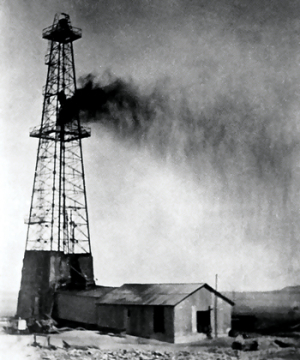
The global economy has become dependent on oil since I was in college. Oil is behind most of our current problems, from global warming to the rise of Putin.
But the fall of oil is made possible by one fact. At the start of this decade I called it crossover. It’s the point where wind energy, and solar energy, become cheaper than energy from fossil fuels.
We made that crossover on schedule, in 2016. Since then, as I predicted, costs for renewables have continued to fall.
This is especially true for the most important form of renewable energy, efficiency. Insulation, LED lights, better furnaces and appliances, and computer controls mean demand for electricity in the U.S. has been stable through this decade. As a result, utilities have embraced electric cars, a technology as old as fossil fuels, but abandoned early in the 20th century because electrical systems hadn’t scaled but oil infrastructure had.
All this should be good news. But it’s not. It’s a crisis the likes of which we haven’t seen since World War II.
Even OPEC now sees demand for its product falling. The International Energy Agency has cut its demand forecasts repeatedly this decade, and now agrees with me.
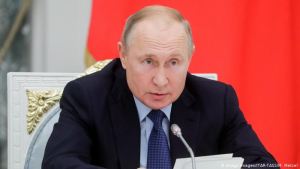
But nowhere is oil more important than in Russia.
Russia has become a kleptocracy under Vladimir Putin, where it was once a communist dictatorship. That kleptocracy rides on oil. Take away oil and Putin falls.
Putin knows this. It’s why he has been trying to destabilize the world. Pitting countries against each other, and against their own people, makes Russia powerful by comparison. That’s why he elected Trump. That’s why he’s trying to tear Europe apart. That’s why he invaded the Ukraine. His survival requires chaos.
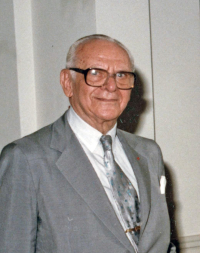
Throughout the oil patch, small oil companies have been getting hammered, going out of business, denied loans, closing shop. The number of drilling rigs is down by one-fourth over the last year. Huge new finds of oil and gas, including recently in Iran, have been met by yawns where once there were cheers.
For years oil producers have been increasing their storage capacity, filling tanks with crude in hope of higher prices that never seem to come. Oil prices are down about 20% from where they were 10 years ago.
But new technologies like fracking, and new offshore wells, require capital investment. Iraqis are rioting not over religion, but over the theft of oil revenue by the government.l Usually passive Russians have taken to the streets. Even Saudi Arabia can’t produce oil at current prices and meet its Vietnam-era purchases of both guns and butter.
The result has been a new kind of oil war.
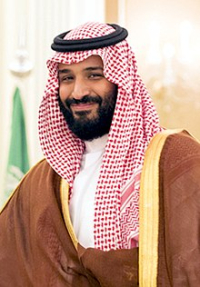
One thing I learned about oil since I was at Rice in the 1970s. It’s very bad for democracy. You don’t need many people to run an oilfield. All you need is control over the infrastructure. You don’t need democracy for that. You don’t get democracy with that.
Money coming out of the ground is as poisonous as fentanyl. It has poisoned Texas and it is poisoning western Canada. It delivered Trump, it destroyed Venezuela, and it enables the Bourbon monarchy of the Saud family. Nigeria is the most corrupt nation in Africa because of oil. Russia has become nothing but a global money launderer, and this money is now the greatest threat to liberty worldwide.
The problem is there’s too much oil. Even as OPEC tries to cut back, and keep prices high, even as the American oil patch goes broke, the oil-a-garchs must hold Venezuela and Iran off the market with brute force. There are also vast new fields off the coast of Africa and South America wanting to come online. Even China is finding oil far more abundant than first thought.
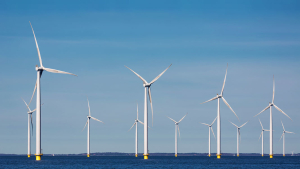
But this is also hugely disruptive, at a time when oil is no longer the world’s cheap energy, with oil fueling the fever that is making the planet uninhabitable.
This is the crisis of our time. It’s not Trump. He’s just a symptom.
It’s oil. There’s too much of it. The global economy, and global political order, is as dependent on oil as an opioid junkie on his pills. Like opioids, oil is legal and useful when taken as directed.
But it’s killing us. It’s replacing democracy with an oil-a-garchic system that can only kill all human life. It doesn’t have to be that way. The solution to the oil crisis is at hand. The Sun shines, the wind blows, the tides roll, we live on a molten rock.
The crisis of replacing oil with renewables is upon us. It’s not purely an economic battle, as I once thought. It’s no longer a domestic issue. It’s a global political struggle.
It’s also life or death for all of us.










It’s an ongoing battle but I really don’t see a way out in the near future. https://cianalytics.com/application/hydrogen-chloride
It’s an ongoing battle but I really don’t see a way out in the near future. https://cianalytics.com/application/hydrogen-chloride